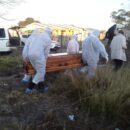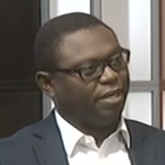Thabo Mbeki on Africa’s Intellectual Leadership

President Thabo Mbeki, speaking on Africa Day at the Thabo Mbeki Leadership Institute, emphasized a necessary precondition if Africa is to claim the 21st century, namely, “the need for Africa to recapture the intellectual space to define its future, and therefore the imperative to develop its intellectual capital!”
The text of his presentation is available here: Thabo Mbeki Africa Day Lecture
First among the six steps identified by Mbeki, is to nurture and build Africa’s intellectual cadre, including “to rebuild and sustain our universities and other centres of learning, attract back to Africa the intelligentsia that has migrated to the developed North, build strong links with the intelligentsia in the African Diaspora, and give the space to these the time and space they need to help determine the future of the Africans.” He appeals for the reinvigoration of the African Renaissance Movement, that was prominent a decade ago but which has fallen by the wayside subsequently.
As with material goods, Africa is a primary producer of intellectual resources, and also a consumer of finished intellectual products, but makes little contribution to the value that is added in between. Much (perhaps most) African intellectual production occurs under northern (American and European) contracts. Consequently, Africa’s intellectual agenda is set outside the continent, with African scholars are co-opted as consultants and primary researchers, while the ablest of them are provided with careers in western universities, research institutes and policy institutions. The final product is then re-exported, its value having been multiplied many times over, to Africa for consumption by African people, governments and institutions. The fact that African names appear as authors of these products does not necessarily mean that they are more “African-owned” than a mobile phone containing African coltan is an African product. Meanwhile African leaders have become so estranged from the structures of intellectual production that they overlook the strategic importance of paying for domestic universities and research and hence owning the processes of generating and refining ideas.
Meeting in Libya last August, African heads of state and governance recognized the importance of intellectual leadership to the continent’s peace and security agenda. Paragraph 19 of the Tripoli
Declaration on the Elimination of Conflicts in Africa and the Promotion of Sustainable Peace, reads:
“Making and sustaining peace and security is also an intellectual challenge. We therefore undertake to build the capacity of our universities and research institutes to explore the nature of African conflicts, to investigate what succeeds and what fails in conflict resolution efforts, and to arrive at African-centered solutions, drawing from our own distinctive and unique experience.”
They might have gone further, as Mbeki indicates, to assert that intellectual leadership is a central strategic challenge for Africa. Controlling the intellectual agenda is claiming the future: abdicating that leadership is surrendering the future.






[…] If we move this formula into the African Continent, the obtained result is even much more bizarre. In a recent post, Emeka Okafor commented the african situation as was exposed by Thabo Mbeki. […]
[…] Thabo Mbeki on Africa’s Intellectual Leadership | African ArgumentsJun 20, 2010 … President Thabo Mbeki, speaking on Africa Day at the Thabo Mbeki … and New Players – by Claudio Gramizzi and Jérôme Tubiana – NEW … […]